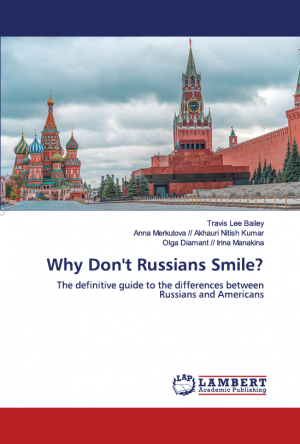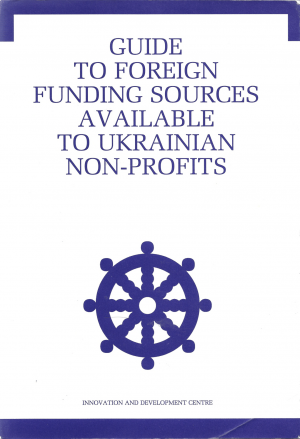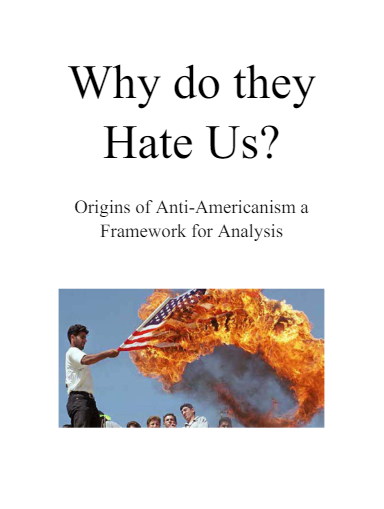English
Меня зовут Трэвис Ли Бейли, я американский преподаватель английского языка, который живет в Москве, Россия, уже 8 лет (2015-2016; 2018 - настоящее время).
My name is Travis Lee Bailey, I am an American English teacher that has lived in Moscow, Russia for 8 years (2015-2016; 2018 - Present).
Innovative teaching approach - student centered
| English | Russian |
|---|---|
|
I teach teenagers and adults, General English, Legal English, Business English, Sociology and International Politics. As an American, I have been teaching children off and on since 2000 in the United States Peace Corps Ukraine, Odessa. A volunteer government organization which works around the world. Since 2000 I have been teaching English to children and adults utilizing the most cutting edge teaching methods. I love the Russian people and I will live here in Moscow for the rest of my life. Five of us published a book on the differences between Russians and Americans, entitled “Why Don't Russians Smile?: The definitive guide to the differences between Russians and Americans” in 2021. Teaching allows me to understand the elusive Russian Soul and to share my culture and ideas. As a sociologist, I bring America to my lessons. My experiences living in 6 American states, my years working at a variety of careers, and everything I have learned from my four diplomas. I believe in a student centered approach to learning. With a marketing bachelors, I specially tailor each one of my lessons to what the client is passionate about or must learn for their career. Learning English should be fun. When students use my English practically in daily life, that is the most rewarding feeling that I can receive in my life. Achieving concrete results is my passion and goal with every one of my dear students. I look forward to meeting you and teaching you soon. |
Russian |
Resume - CV
| English | Russian |
|---|---|
|
SUMMARY OF QUALIFICATIONS |
|
|
• While employed by the United States Government for two and a half years, taught English classes to children from ages six to seventeen, at orphanage Internat 4 in Odessa Ukraine. • Taught adults English at the basic beginning, intermediate and advanced level of English for the Washington English Center. • Taught in Moscow since 2015. Currently residing in Moscow • TEFL certified with four degrees including a Master in International Relations and Juris Doctorate earned concurrently, Bachelors of Science in Marketing, Masters in Sociology. |
|
|
|
SELF EMPLOYED MOSCOW, RUSSIA • Taught CPE (C2 Proficiency) and ILEC courses (Cambridge English: Legal (ILEC)) • Taught English to executives of top Russian legal and business multinational firms |
|
ENGLISH TEACHER MOSCOW, RUSSIA • Taught English to adults and children, general and business English in groups of up to 10 students. • Combined various English teaching methods and techniques to help students improve their results. • Created a full curriculum |
|
WASHINGTON ENGLISH CENTER WASHINGTON, DC • Taught pre-and upper-intermediate multilingual classes of 5-12 students in English as a Second Language • Employed original and authentic texts; created activities targeting receptive and productive skills and language systems • Developed curriculum that was appropriate to students' learning abilities and reflected their needs and interests. • Used and adapted materials from Cambridge Ventures Series: Basic, Intermediate and Advanced. |
|
SOLO PRACTITIONER, BANKRUPTCY AND FORECLOSURE WASHINGTON, DC • Taught adult clients complex legal terminology. |
|
DEPARTMENT OF HEALTH AND HUMAN SERVICES, TORTS AND PROCUREMENT WASHINGTON, DC |
|
DEPARTMENT OF WORKFORCE SERVICES SALT LAKE CITY, UTAH |
|
ATTORNEY GENERAL’S OFFICE CHILD SUPPORT DIVISION, CENTER FOR LEGAL AND SOCIAL JUSTICE SAN ANTONIO, TEXAS • Explain and taught complex legal proceedings to clients. |
|
UNITED STATES PEACE CORPS VOLUNTER ODESSA, UKRAINE • Taught English classes to children from ages six to seventeen, at orphanage Internot 4 in Odessa Ukraine. • Initiated, designed and published the most comprehensive book on obtaining international development grants for the most prominent Ukrainian grants organization Центр інновацій та розвитку. |
|
American diplomas and certificates
Published books
« Почему Нас Ненавидят? Корни Анти-Американского Движения: Основа для Исследования » - Origins of Anti-Americanism A Framework for Analysis: Why Do They Hate Us (Americans)? (Published in the 2nd edition of Why Don't Russians Smile?: The definitive guide to the differences between Russians and Americans - (2024))
« Почему русские не улыбаются ?: Подробное руководство по различиям между русскими и американцами. » www.WhyDontRussiansSmile.Com - Why Don't Russians Smile?: The definitive guide to the differences between Russians and Americans (2020)
'

|
Travis Lee Bailey, Esq.
American Lawyer and Think Tank Consultant in Moscow, Russia
Трэвис Ли Бейли - Американский юрист: Аналитический центр Консультант в Москве, Россия
Email: MoscowAmerican at Gmail Com
Skype: TravBailey
Facebook: Moscowamerican3
VK.com: MoscowAmerican
Twitter: Moscowamerican
LinkedIn: MoscowAmerican
Instagram: MoscowAmerican
Published in July 2021. (1st edition) - Amazon.com. </div></div> « Другая Война Америки: Тирания в Колумбии » - America's Other War: Terrorizing Colombia (2017)« Руководство по источникам иностранного финансирования для украинских некоммерческих организаций » - Guide to Foreign Funding Sources Available to Ukrainian Non Profits (2002)
Guide to Foreign Funding Sources Available to Ukrainian Non Profits (2002) The Innovation and Development Centre (IDC), a Ukrainian non-profit organization, proudly presents this third edition of the directory of foreign donor opportunities for Ukrainian initiatives. In response to overwhelming demand from non-profit organizations across the country, the IDC has updated and expanded this directory to include a wider range of opportunities... This 2002 edition has been further expanded and edited to include a larger number of foundations, governmental programs and international organizations to provide even more funding opportunities. Because of the increasingly growing influence and importance of the Internet in grant seeking, this edition focuses more on the use of the Internet than the previous two editions. Research for this guide was conducted through March - June of 2002. Information regarding each organization, their program priorities and activities was carefully checked for accuracy and applicability to Ukraine. The IDC contacted each organization in order to obtain current information and a detailed description of their programming. Additionally, each organization was encouraged to tailor its information to the Ukrainian audience. Every effort was made to ensure the accuracy of the information presented, yet as granting priorities and organizations rapidly change, the accompanying contact information and programming may also be subject change... The IDC would like to acknowledge the Charles Stewart Mott Foundation for providing continual support and assistance to the development of the Ukrainian third sector. Additionally, the IDC thanks U.S. Peace Corps Volunteer David Koenig for assisting with the 2000 guide. The IDC would also like to thank U.S. Peace Corps Volunteers Travis Bailey and Patrick M. Breiding for their work on the 2002 guide. Почему Нас Ненавидят? Корни Анти-Американского Движения: Основа для Исследования - Origins of Anti-Americanism A Framework for Analysis: Why Do They Hate Us (Americans)?
Why do They Hate Us? Origins of Anti-Americanism A Framework for Analysis Content
English IntroductionStatistical Package for the Social Sciences (SPSS) research paper. Why do they hate us? After 9/11, this question was heard throughout American media. Despite the interest about Anti-Americanism in the popular journalism, academic literature on the subject of Anti-Americanism has been surprising limited. While the limited research around Anti-Americanism has focused on which country's citizens are Anti-American and/or has attempted to quantify what Anti-Americanism is, little existing research has explained the social and economic factors which cause Anti-Americanism. This paper will seek to understand key cultural drivers that have fostered Anti-American sentiment. While outside the scope of this research, these results may contribute to a critical reassessment of the deep-seated roots of third world rage, and help avert future terrorist attack on United States interests. Conclusion This study sought to identify at a broad level, significant factors that have led to Anti-Americanism in many of the world's countries. The research first analyzed the impact of economic independent variables followed by economic aid and US troop levels. In summary, only military aid and sales showed a strong significant relationship to Anti-Americanism. RUSSIAN excerpt (РУССКИЙ отрывок)Почему они ненавидят нас? Происхождение анти-американизма: Почему они ненавидят нас? После 11 сентября этот вопрос прозвучал во всех американских СМИ. Несмотря на интерес к антиамериканизму в популярной журналистике, академическая литература по теме антиамериканизма оказалась удивительно ограниченной. В то время как ограниченные исследования вокруг антиамериканизма были сосредоточены на том, какие граждане страны являются антиамериканцами и / или пытались количественно определить, что такое антиамериканизм, мало существующих исследований объяснили социальные и экономические факторы, которые вызывают антиамериканизм. В этой статье мы попытаемся понять основные культурные факторы, которые способствовали развитию антиамериканских настроений. Хотя эти результаты и выходят за рамки настоящего исследования, они могут способствовать критической переоценке глубинных корней ярости третьего мира и помочь предотвратить будущие террористические нападения на Соединенные Штаты. Вывод Это исследование было направлено на выявление на широком уровне существенных факторов, которые привели к антиамериканизму во многих странах мира. В ходе исследования сначала анализировалось влияние экономических независимых переменных, а затем - экономическая помощь и численность американских войск. Таким образом, только военная помощь и продажи демонстрировали сильную значимую связь с антиамериканизмом.Обзор существующей литературы. В исследовании 1992 года на тему антиамериканизма Смит и Вертман (1992: 188) заметили, что «хотя антиамериканизм уже давно вызывает обеспокоенность у СМИ и политиков США», антиамериканизм игнорируется учеными. Почти два десятилетия спустя, и несмотря на атаки 11 сентября и феноменальный рост антиамериканских настроений по всему миру, это утверждение все еще остается верным (Джонстон (Johnston), 2006, стр. 3). Ученые считают причиной отсутствия внимания три фактора. Первый фактор заключается в том, что антиамериканизм - это неоднозначный термин, который трудно осмыслить (Джонстон, 2006, стр. 3). Во-вторых, антиамериканизмом чаще называют эмоции, которые являются реакцией на какое-либо событие, чем используют как определение самих событий. Там, где другие темы социальных наук находят аналитиков и аналогии, антиамериканизм должен бороться с крестоносцами (Джонстон, 2006, стр. 3; Миллер, 1982, стр. 3). Последний фактор американская коллективная амнезия, человеческая тенденция перекладывать вину на удобные абстракции и культурное чувство невиновности (Мак Ферсон, Миллер (McPherson, 2004, 148; Miller, 1982), стр. 253). Джонсон (2006: 10) заявляет, что большинство антиамериканской литературы явно имеет свой посыл, и почти все антиамериканские ученые разделяются на два лагеря. Одна группа ученых утверждает, что виноваты политики Соединенных Штатов и что Соединенные Штаты ненавидят за то, что они делают и их внешнюю политику и действия, «внешняя» причина (с. 10). Вторая группа ученых, заявляет, что антиамериканизм является иррациональным поведением, что антиамериканизм происходит от психологических, культурных или политических аспектов нации, граждане которой проявляют антиамериканизм. Эти авторы предполагают, что граждане других стран ненавидят Соединенные Штаты за то, чем они являются, «внутренняя» причина. (Джонстон (Johnston), 2006, стр. 10; Schlapentokh & Woods, 2004, стр. 167). Джонстон (2006: 5) утверждает, что «несмотря на то, что это притворяется законной социальной наукой, основная масса этой литературы в значительной степени не более чем тонко завуалированная пропаганда, которая поразительно (и тревожно) похожа на литературу, выпущенную сторонниками правого крыла и комментаторами консерваторов" . Наиболее известный внутренний взгляд - «Столкновение цивилизаций» Хантингтона (1996: 15). Хантингтон полагает, что существует непреодолимая пропасть между Западом и его ценностями и Исламом и его ценностями. Недавние исследования основаны на этой внутренней гипотезе.
Full White Paper<pdf width="800" height="500">File:Why do they Hate Us Origins of Anti-Americanism A Framework for Analysis.pdf</pdf> Teaching recommendations and articlesRecommendationsКарьера юриста - Legal Career
Photos |






















